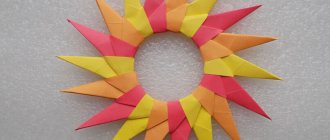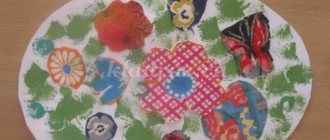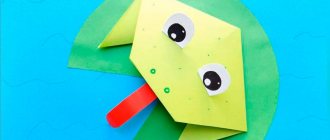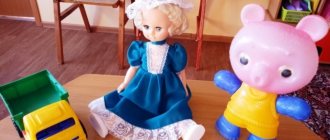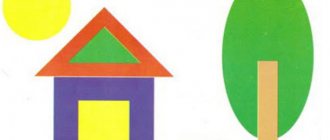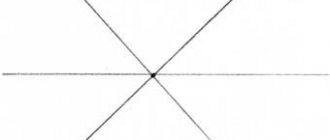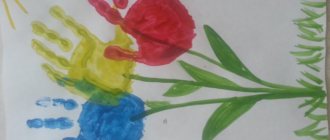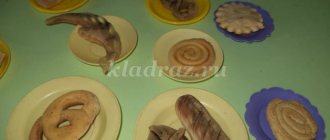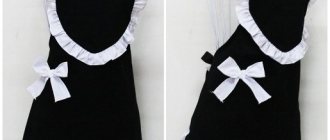Project “Health is given by Aibolit” in the senior group of preschool educational institutions
Project on the topic: “Aibolit gives health” in the senior group. Project duration
: short term.
Project type
: group, frontal.
Project participants:
teachers, older children, parents.
Relevance of the project
: Every person has great opportunities to strengthen and maintain their health, to maintain capacity for work, physical activity and vigor until old age. The most pressing problem today is preserving and strengthening the health of children. V.A. Sukhomlinsky wrote: “I am not afraid to repeat again and again: caring for the health of a child is the most important work of a teacher.” Health is considered as complete physical, mental and social well-being, as a harmonious state of the body, which allows a person to be active in his life and achieve success in various activities. It is well known that the health of a nation is one of the most important indicators of its well-being. The future of Russia depends on the health of the younger generation.
The issues of forming the foundations of a healthy lifestyle in preschoolers and the need for daily physical activity are reflected in all currently existing education and training programs. Along with work on hardening, the formation of cultural and hygienic skills and basic movements, these programs set the task of teaching the child to take care of his health and safety.
Target:
Raising a psychophysically healthy, intellectually developed, socially active child.
Tasks:
— preserve and strengthen the physical and mental health of children;
- form initial ideas about a healthy lifestyle;
— ensure the psychophysical well-being of children and form a conscious attitude towards their own health;
- create a developmental subject environment of the preschool educational institution, a favorable atmosphere;
— develop and improve children’s motor skills;
- cultivate the desire to be healthy;
— to form responsibility among parents and pupils for maintaining and promoting health;
— to cultivate good feelings, emotional responsiveness, and the ability to distinguish between the emotional states and moods of others.
Expected result of the project:
— organization of a meaningful health-preserving developmental environment in the group;
— reducing morbidity and increasing the level of health of children;
- the formation of a hygienic culture in children and the presence of a need for a healthy lifestyle (the ability to maintain a daily routine, knowledge about proper nutrition and vitamins, etc.);
- active assistance and interest of parents in organizing work to improve the health of children.
Activities
: gaming, productive, musical and artistic, cognitive, constructive activities; looking at illustrations and books; didactic games, conversations with children, solving problem game situations, artistic creativity.
Integration by region:
“Physical development”, “Social and communicative development”, “Cognitive development”, “Artistic and aesthetic development”, “Speech development”.
Creation of a thematic development environment, gradually replenished and enriched as the topic is mastered.
Contents of the project.
Stage 1.
- study methodological and fiction literature on the topic;
- select illustrative material on this topic, toys, attributes for gaming, educational, theatrical activities;
- draw up a plan of activities for each day, a card index of poems, riddles, proverbs, visual and breathing exercises;
— to involve parents in joint work to develop a culture of health in children of senior preschool age;
At this stage it is necessary to identify the problem:
— How to maintain your health?
Stage 2
– Basic
Work with children by day of the week:
Monday – “Keep your health yourself”
Target:
To instill in children a conscious attitude towards their body:
- Regime moment “Visiting Doctor Aibolit.”
- learning proverbs and sayings about health;
- looking at illustrations: “Why did the guys get sick”
- Conversation: “What do I know about health?”
- Didactic games “Beneficial and harmful”, “What we need for health” (with a ball)
- Plot-role-playing game “Hospital” Reading fiction Shorygina T. “Exercise and colds”
- Outdoor games: “Guess who’s calling”, “Owl”.
Tuesday – “Me and my body”
Target:
To form the concept that a healthy body needs physical education, conditioning, and proper nutrition.
- Conversation “My body”
- Examination of illustrations “Human Body”, “Human Organs”.
- Looking at portraits of people of different appearances.
- Making riddles about body parts.
- Didactic games: “Mirror”, “Photo sketch”.
- Story-based role-playing game "Hospital".
- Observation on a walk “How are we different from children of younger groups?”
- Modeling "My Family".
- Reading fiction by Zhabrov E. “Be sporty and healthy.”
- Outdoor games: “Needle, thread, knot”, “Jolly guys”.
Wednesday – “Vitamin Day”
Target:
Help children understand that human health depends on proper nutrition, explain that food should not only be tasty, but also healthy.
- Excursion to the kitchen - observing the work of the cook, strengthening vocabulary on the topics: “products”, “vegetables”, “fruits”.
- Drawing “Vegetables and fruits are healthy foods.”
- Conversation: “I love vitamins, I want to be healthy.”
- Didactic games: “Make a vitamin salad”, “Fruit salad”.
- Coloring pictures with vegetables and fruits.
- Reading fiction: Mikhalkov S. “About a girl who ate poorly”, “Vegetables”.
- Outdoor games: “Pass the ball”, “Centipede”.
Thursday - “We value order - we adhere to our regime.”
Target:
Introduce children to the daily routine. Show the importance of adherence to the regime in promoting the health of each person; consolidate the concept of the importance of the daily routine; to cultivate the desire to adhere to the rules for its implementation, to develop memory and thinking, the ability to reason, and draw conclusions.
- Conversation “Our faithful friends - daily routine”
- Conversation: “Why are we sleeping?”
- Reading fiction: “Business Man” by L. Ryzhov, “On the contrary” by E. Karganov, Grozovsky M. “Daily Routine”, Shorygina T. “Why follow the regime”,
- Conversation: “Beautiful posture”
- Drawing: “My daily routine at home”
- Didactic games: “When it happens”, “Exact time”, “My day”.
- Outdoor games: “Don’t sleep, don’t yawn”, “Day - night”, “Live hours”.
Friday – “If you want to be healthy, toughen up!”
Target:
Introduce children to the rules of hardening and its benefits for the body.
- Conversation: “Sun, air and water are our best friends.”
- Carrying out hardening procedures with children - “About how we harden in a group.”
- Reading fiction by Zhabrov E. “Be sporty and healthy.”
- Entertainment “Being healthy is great!”
Stage 3 is the final stage.
Joint sports entertainment “Being healthy is great!” — consolidation of previously acquired knowledge on maintaining and promoting health; show the benefits of a healthy lifestyle, make children want to engage in hardening their bodies and sports.
Interaction with parents:
1. Acquaintance with the project activities, inclusion of parents in the course of the project.
2. Consultations: “Tempering yourself correctly”, “Harmless sweets”
Literature:
- Golitsina N.S., Shumova I.M. “Education of the fundamentals of a healthy lifestyle in children” - M., “Scriptorium 2003”, 2010.
- Lobodin V.T., Fedorenko A.D., Alexandrova G.V. “In the land of health” - M., “MOSAIC-SYNTHESIS”, 2011.
- Utrobina K.K. “Entertaining physical education for preschoolers” - M., Gnom, 2003.
- Shebeko N.V. “Variable physical education classes in kindergarten” - M., Publishing House of the Institute of Psychotherapy, 2003.
- Shorygina T.A. “Conversations about health” - M., “Sfera”, 2008.
